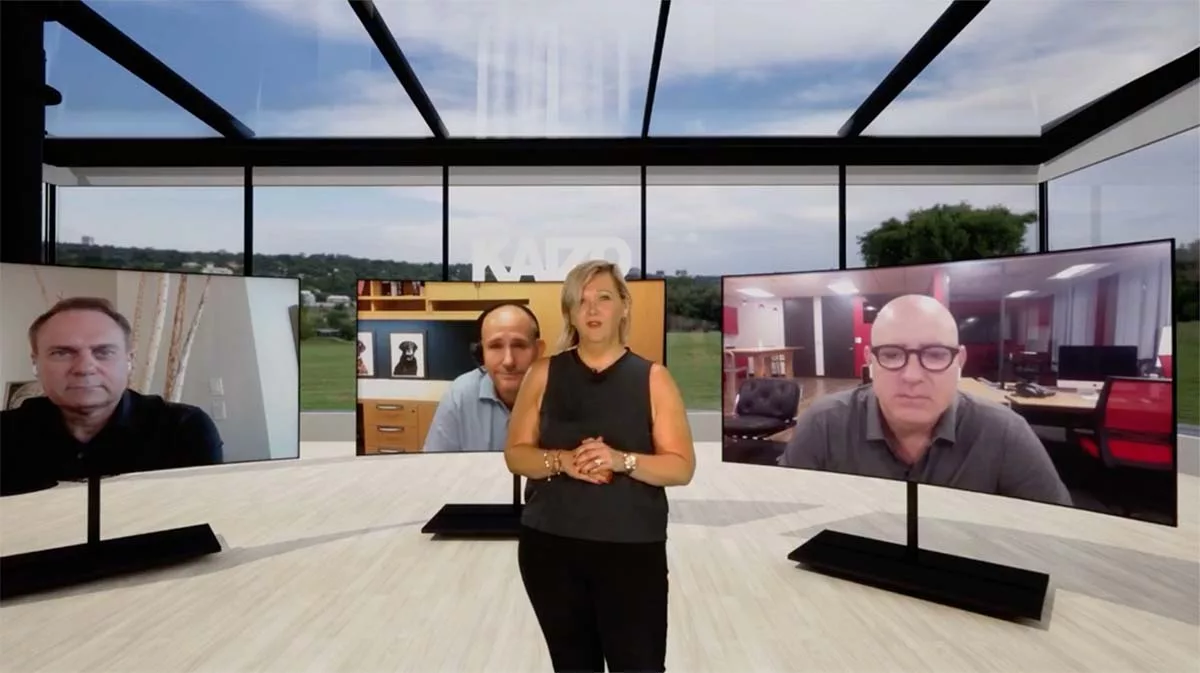By Alyssa Siegel
The COVID-19 pandemic has ushered in changes that fundamentally shift the game of public relations. As the world settles into a new normal, agencies must evaluate strategies and anticipate industry trends to come.
Agency President and CFO Stefan Pollack recently participated in a panel hosted by Kaizo PR, focusing on the current state of media in the US as well as emerging trends, challenges, and opportunities that have surfaced since the onset of the pandemic. Pollack was joined on the panel by a group of Worldcom Public Relations Group agency partners including Roger Hurni, Managing Partner and Chief Creative Officer at Off Madison Avenue; Matt Kucharski, President at Padilla; and host and Kaizo Director Steph Macleod. Here are some of the key takeaways from the panel.
Business in the new normal
In remarking on team performance, Pollack said, “Agility, intensity and working at a fever pitch has been a norm.” He noted that despite a period of economic downturn, demand for agency work has remained, as a result of internal shifts in client companies.
Remote work challenged the flexibility of agency employees. Kucharski noted that “we may be working about the same number of hours, but they are more intense hours” and that “we are all going through a life-changing and life-forming experience.” He identified a pivot in his agency’s work, where marketing demands declined, while those for corporate communications services increased.
Hurni highlighted some perks of 2021 for his agency, including new business and purchasing another company. “COVID for us has accelerated a three to five-year plan to where we could have staff more remote and more flexible,” he said.
Navigating US media relations
Successful media relations rely on communicating a genuine brand voice. “We are advising our clients that if you can contribute in an authentic and honest way, then by all means contribute and create programming that enables you to speak to the media in a helpful way,” Pollack said. He emphasized that encouraging clients to recognize where they are in the story lifecycle is crucial for effective media communications.
READ MORE: Keys To Breaking Through In A COVID-Dominated News Cycle
Hurni pointed out that clients are viewing products differently in terms of helping, versus selling, demonstrating a shift towards authenticity. Rather than hard selling, businesses are seeking to connect through honest contribution and communication with consumers. On the topic of resourcefulness, Kucharski added that earned media should be viewed as a strategic supplement to other methods such as paid digital rather than a panacea for creating broad-based awareness. He also shared the importance of having frank conversations with clients about changes in the state of media relations.
Rising significance of the PESO model
The panelists highlighted the importance of the PESO model, which encourages the integrated use of paid, earned, shared, and owned media. “We are seeing a rise in the entire PESO model,” Hurni said, noting that there has been more emphasis on earned media’s objectivity, owned media’s controllability, and shared media’s engagement. He and Pollack agreed that paid media has taken a backseat.
Kucharski concurred with the relevance of the PESO model. “We have to get out of the mode of thinking about this as four separate buckets because…the magic happens when you get those different elements of the PESO model to work together.”
Approaching social issues
Unprecedented and rapid developments in the world upended the corporate status quo. “Leadership is getting more comfortable with not having all the answers and needing to communicate to employees, investors, customers and communities in an environment where they don’t have it all figured out,” Kucharski said. Hurni added that staff members are taking a more active role in providing input in the face of uncertainty. “Really good businesses who will thrive will embrace more of that open dialogue and communication – I think that’s a fundamental change for the good,” Hurni said.
READ MORE: Panel Recap – Careers In Social Impact
The panelists described current shifts in corporate culture and forecasted future trends. Kucharski pointed out that companies face pressure from employees to discern which social issues to address. “Staying silent is actually speaking now,” he said. Hurni added that companies used to take a passive attitude to avoid irritating anyone, but now face public outcry when silent.
Lessons learned as agency leaders
Each of the panelists shared lessons gleaned from the past months. Hurni reflected on the initiative and reliability of his team during challenging times. “I learned a lesson there in that it doesn’t have to always be a leadership solution,” he said. “Those solutions can come from a lot of different places…step back and let them do amazing things.”
Grateful for the adaptability of his employees, Pollack commented on the nature of resilience. “Resilience and agility are innate things that we, as human beings, just have and if you create an environment where those things can flourish, they will flourish naturally on their own.”
For Kucharski, the impact of change stands out. “When people experience change without understanding the purpose behind the change, it’s really scary and unsettling to them. When people experience change and they understand the purpose and long-term direction, that change can be energizing. I’m trying to look at the changes we are making and make sure they are put into a good context,” he said.






